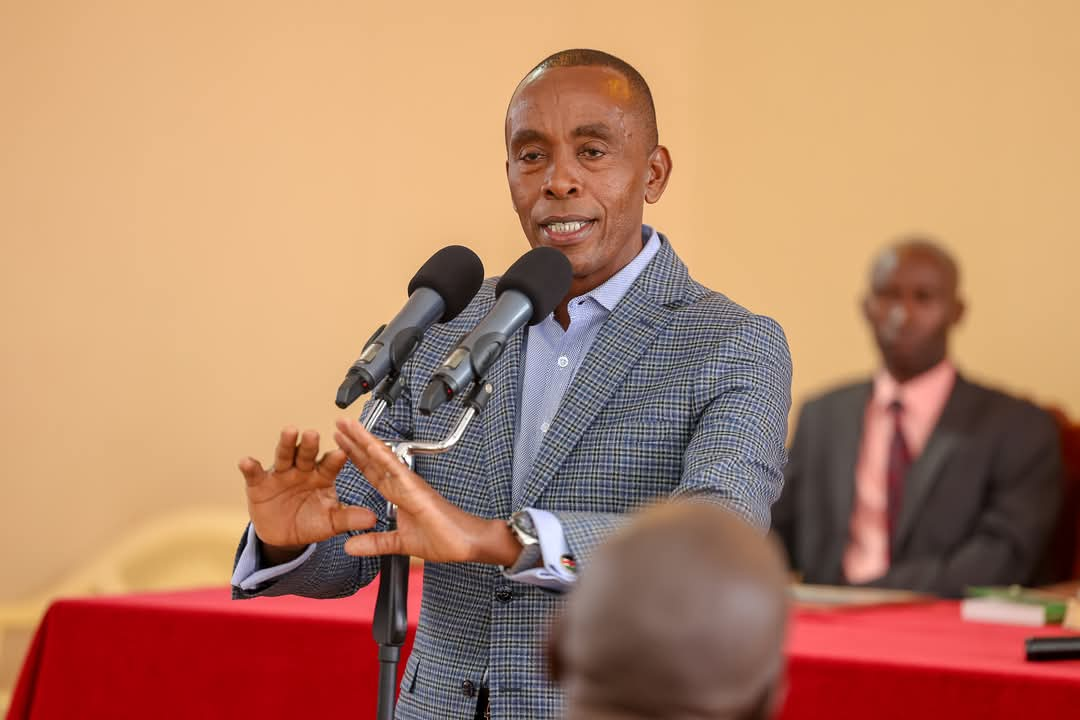
Kiambu Governor Kimani Wamatangi has made a strong case to the Senate to elevate Thika Municipality to city status, saying the town has met—and in some cases surpassed—all the requirements for elevation.
Appearing before the Senate Devolution Committee, chaired by
Wajir Senator Sheikh Abbas, he urged the lawmakers to adopt a report
that would make Thika Kenya’s sixth city.
Nairobi, Kisumu, Mombasa, Nakuru and Eldoret are the other cities
in the country.
He described Thika as a fast-growing industrial town, once
compared to Birmingham in the United Kingdom, and home to several higher
education institutions—a key criterion for city designation.
“Thika Municipality is one of the country’s major industrial
hubs, known for its vibrant manufacturing sector and rapidly expanding urban
landscape,” Wamatangi said.
“We urge the Senate to pass a resolution on the conferment
of the Industrial Smart City status.”
According to the Urban Areas and Cities Act, a municipality
qualifies for city status if it has at least 250,000 residents, based on the
official gazette by the Kenya National Bureau of Statistics.
The 2019 Population and Housing Census placed Thika’s
population at 279,429, with projections of nearly half a million by 2035 and
almost one million by 2039, assuming a 3.4 per cent annual growth rate.
Wamatangi said the Kenya National Highways Authority plans a
multibillion-shilling project to decongest Thika by dualling the Thika–Garissa highway.
The 15-kilometre expansion—stretching from the Thika
Superhighway to Gatitu junction, Makongeni, Kisii and Gatuanyaga—will cost
Sh3 billion, while interchanges at Gatitu, Engen and BAT will cost an
additional Sh2.5 billion.
“Improving urban mobility is among the top priorities of
Kenya’s government. Through the proposed Kenya Urban Mobility Improvement
Project (KUMIP), the government seeks to engage the World Bank in the urban
transport sector to address urban mobility challenges,” Wamatangi said.
Although Thika currently lacks an airport, part of the
repossessed Del Monte land has been earmarked for a future airstrip.
Thika Water and Sanitation Company, which supplies about
40,000m³ of water daily, has entered into a Sh15.4 billion partnership with the
Danish International Development Agency to expand its capacity.
The project will include building a new dam, expanding the
River Chania intake, constructing a new treatment plant, rehabilitating
existing facilities and adding last-mile connections.
Wamatangi also revealed that discussions with President
William Ruto will see Thika receive an additional 10 million cubic metres of
water from the Kariminu II Dam to meet the growing population’s needs.
The governor argued that city status would attract both local
and international investors, boost economic growth and create jobs.
“City status often comes with increased funding and
infrastructure upgrades. Thika will have better roads, efficient public
transport, improved water and sewerage systems and other critical
infrastructure that will enhance quality of life,” he said.
Senators, however, questioned Thika’s readiness, particularly in healthcare and land availability.
Kisii Senator Richard Onyonka
asked about the number and level of health facilities that should be in place
before elevation.
In response, Wamatangi said Kiambu has 14 level 4
hospitals, three facilities upgraded to level 5 serving neighbouring counties,
68 level 2 facilities and 28 level 3 centres.
Nandi Senator Samson Cherargei supported the proposal but
sought updates on amenities such as schools, recreational areas and hospitals.
Wamatangi said the county has built more than 300 ECDE centres
with playgrounds and is actively reclaiming grabbed public land, including
parks.
“Land grabbing has been one of the major issues we are
dealing with. We have parcels of land that were grabbed, but we are recovering
them. The fight continues,” he said.
Nominated Senator Catherine Mumma praised the county for
recording zero maternal deaths in its health facilities in the past six months,
saying other counties could learn from its example.











